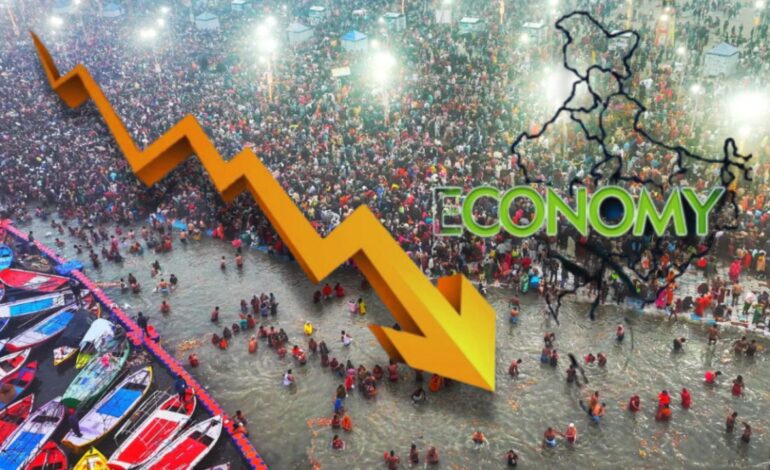
In The Indian Express, Pratap Bhanu Mehta kicks off his recent column thus: “The downward revision of India’s growth prospects to 6.4 per cent in FY 25, down from 8.2 per cent, the lowest growth forecast since the pandemic, should be dominating the news cycle.”
Did it dominate the news cycle? It’s worth looking at the front pages of Indian newspapers since the morning of January 8 (the morning-after news cycle after the official announcement the previous day). Among the newspapers I saw, only The Indian Express thought it fit to lead with the story in the front page and give it the treatment and play it deserved with graphics and a chart. A few others had the story on Page 1 but not all. Not a single Malayalam newspaper I saw had any mention of the growth estimate in the front page.
Since then I have not seen any story in the front pages of any newspaper I read on the state of the economy. Commentaries may have appeared in the opinion pages but it is not the same as flagging the issue in the front page . Prasenjit Bose and Soumyadeep Biswas did write an excellent analysis in The Hindu but I am not sure how many lay readers get to see such articles.( Of course, many experts say the sports and entertainment pages are the most prized but try placing an ad on Page 1 and you will realise its real value.)
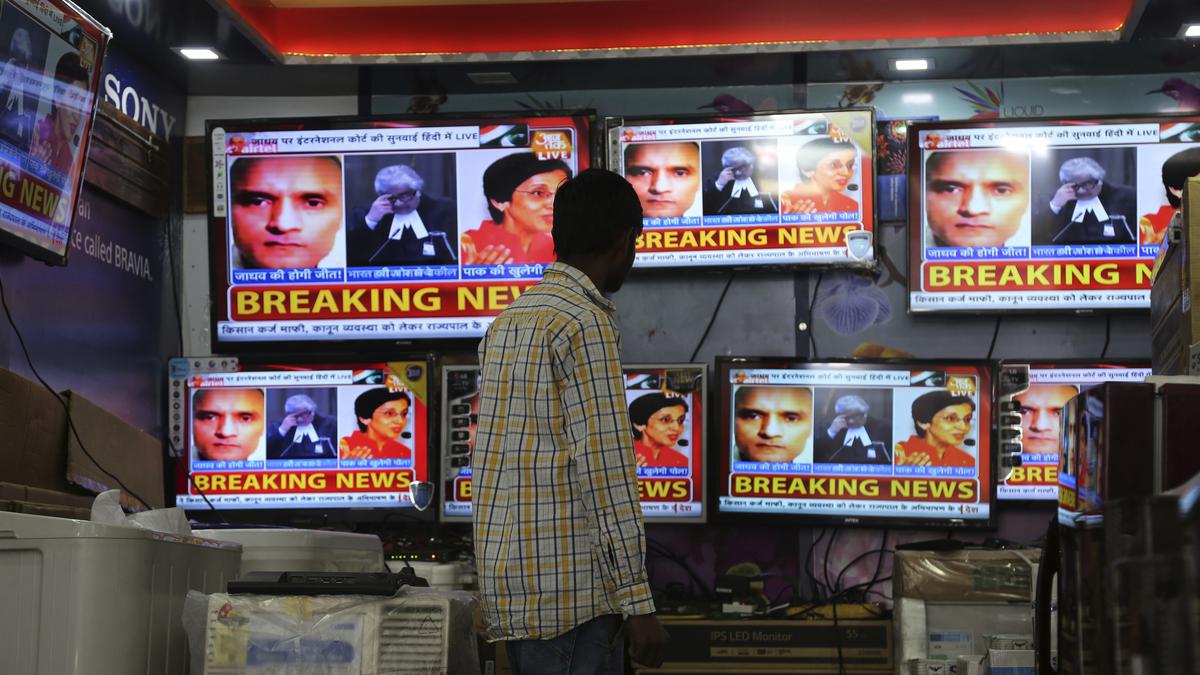
Why have reports on the economy failed to fire up editors? Why is the state of the Indian economy deemed less important — and not worthy of a follow-up – to our newspaper readers than the earthquake in Tibet (which appears to have touched more hearts than the genocide in Gaza has) and the Kumbh Mela?
I had thought that my ignorance (a comment on the economy by a layperson is one of the most dangerous misadventures because such views would be chewed up and spat out by pundits with such contempt that by the time the sermon is over, you would have realised that you know neither economics nor politics) was making me wonder why the state of the economy has been pushed deep inside newspapers. Then, I saw Mehta’s opening lines.
Does the recent purported allergy to news on the economy in “general newspapers (whatever it means)” trace its roots to the “secession” Mukul Kesavan had written about last year — “the secession of India’s comfortable professional classes from public institutions of every sort, from hospitals to school boards”? Does it mean that the said “secession” has caught up with the economy, too? That most newspaper-reading citizens (yes, such a species does exist. Yesterday, the Malayala Manorama editorial director told a seminar in Kerala that the print media is on the path to “resurrection”) are no longer affected by how good or bad the economy is doing?
Before the 2024 general election when an impression was created that the Modi regime might cross 400 seats, some political observers had despaired and wondered whether large sections of Indians had “depoliticised” themselves. The results proved them wrong.
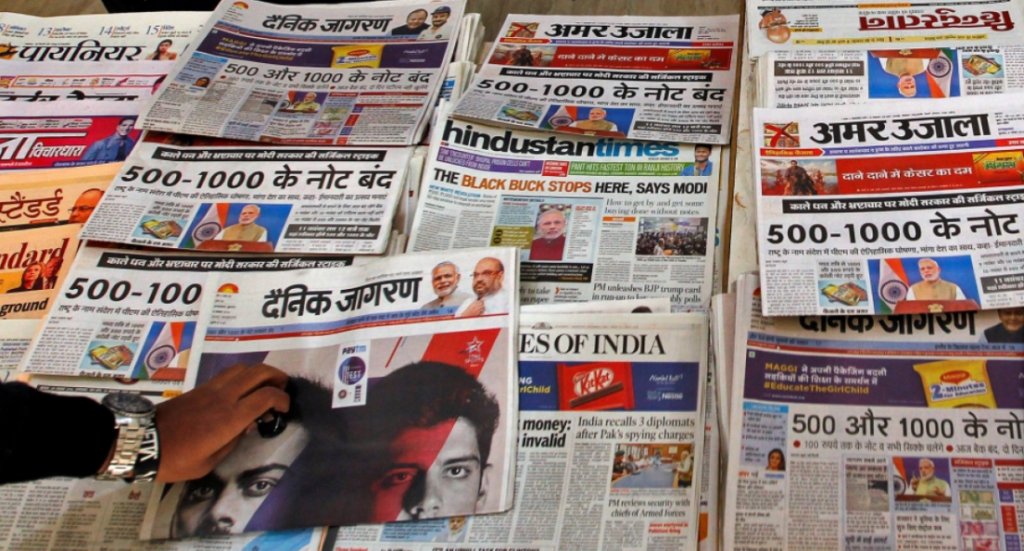
I hope the indifference of newspapers to the economy is not because editors have assumed that large sections of Indians have “de-economicsised” themselves and, hence, the Kumbh is more important than the pot of money that offers us sustenance.
I don’t believe in the usual suspects — fear of government, ED, IT etc — that are cited when “negative” news is suitably camouflaged. Those who reported the news in the front page did not hesitate to say in the headline that the pegged growth rate is the lowest in four years. There is no need for fear because the figure is cited by the government itself.
But the indifference since then and a reluctance to follow-up have been disturbing, especially because journalists who entered the profession in the 1980s and early 1990s — some of them are good writers who can break down reports on the economy into easily comprehensible stories — are in leadership positions in several newspapers. Besides, in order to cover the economy, you don’t need the additional resources (such as a travel budget, local transport and accommodation) that are required to report on the Kumbh Mela. And economists are easy and honourable to speak to and they are more often than not willing to be questioned and challenged, unlike the dial-a-quote celebrities from films and sports who cannot stand anything other than PR journalism. Still, it is a riddle why stories on the economy that ask tough questions are not being done.

Mehta’s column suggests that some of the fundamental problems are not related to economics alone. Which makes the decision by newspapers to vacate the battlefield all the more puzzling and indefensible. My intention is to merely flag a question that I had suppressed for a week out of fear for sholastic-lynching but it was “resurrected” (to borrow from Manorama’s editorial director) by the first sentence in Mehta’s column. I do hope journalists would discuss this issue among themselves.
Of course, I highly recommend the recent column by Mehta. At the risk of being chewed up and spat out, my reckless instincts are kicking back to high gear and I will stick my neck out and say that I more or less agree with Mehta’s analysis and conclusions. Mehta makes another pertinent point with great political ramifications towards the end of his column (the last part of the penultimate paragraph) that has a bearing on journalism although he has not specifically said so. I am avoiding a discussion on that here to ensure that the focus is not diffused and we are not distracted from the larger economy.
This article is sourced from R Rajagopal’s social media posts.


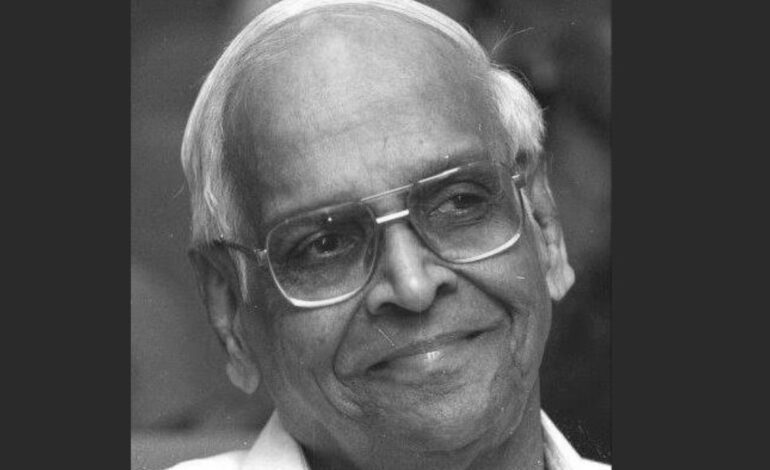
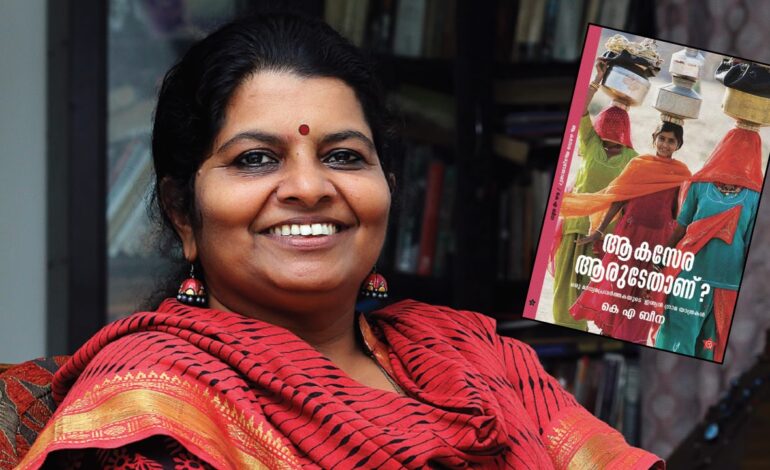








During the Nazi takeover of Germany in the 1930s, the phrase ‘vorausschauender Gehorsam’, which means ‘obedience which leaps out ahead’, or ‘jumps out ahead’, came into vogue – our media seems to be perfecting that art of blind genuflection.